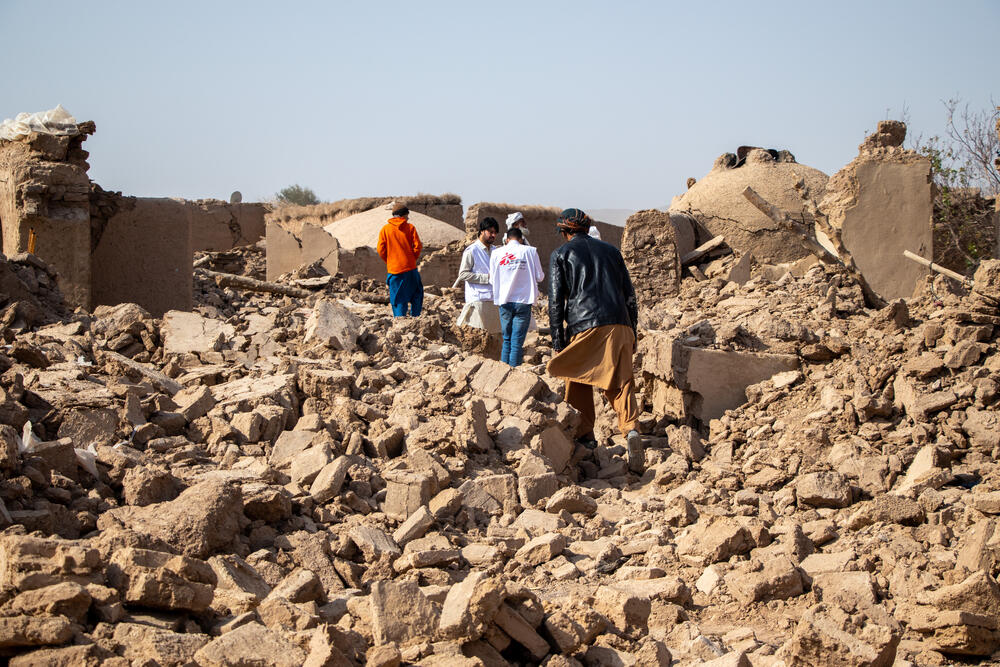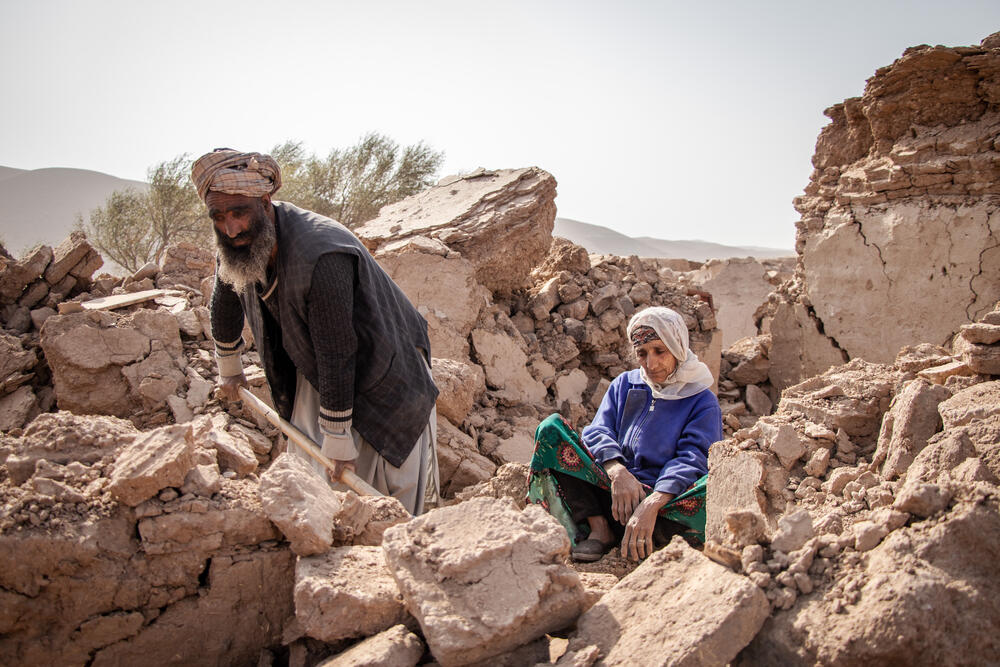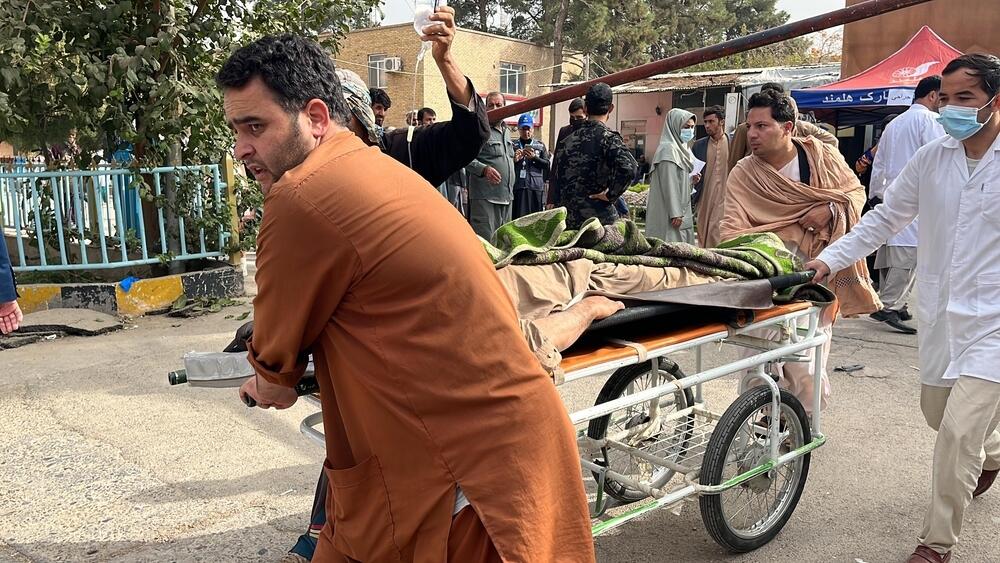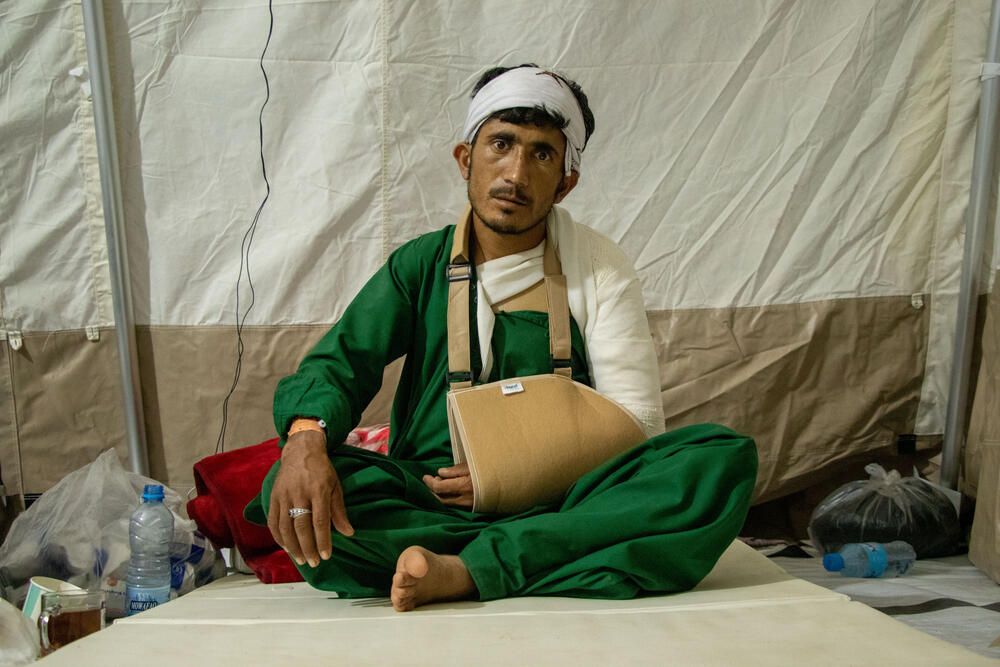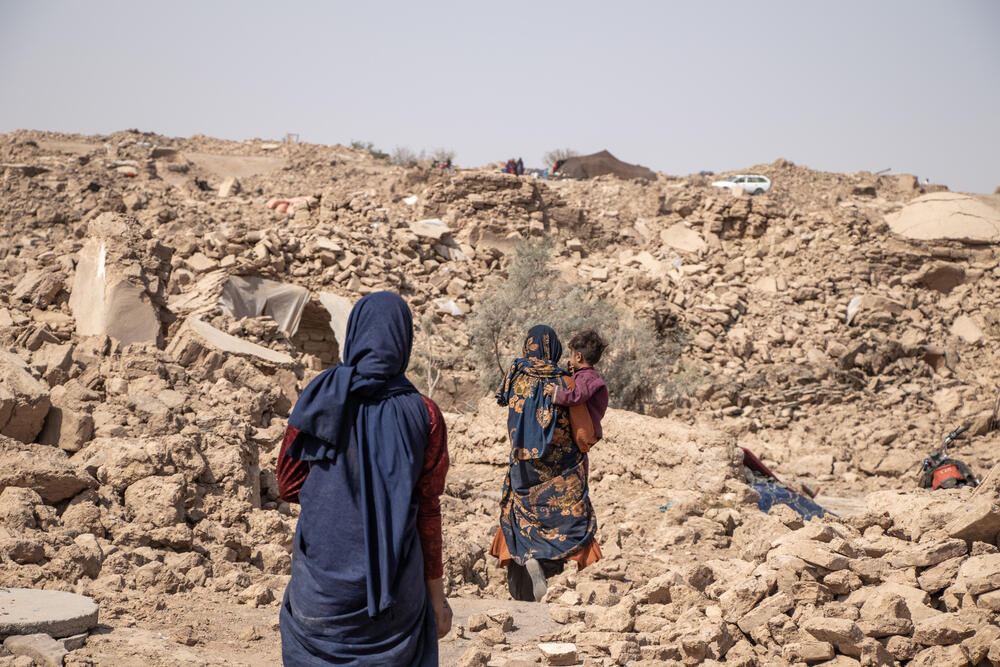Afghanistan’s triple earthquake crisis: What you should know
People in western Afghanistan have been hit by a devastating week, with three powerful earthquakes hitting the region in just eight days. Many have lost everything, with homes and livelihoods destroyed and whole families killed.
Médecins Sans Frontières / Doctors Without Borders (MSF) teams are on the ground and have been responding since the first moments of the crisis.
1 – What happened?
At around 11 am on Saturday 11 October, western Afghanistan was hit by an earthquake of 6.3 magnitude. This was followed by aftershocks measuring 5.5, 4.7 and 5.9 on the Richter scale.
Just four days later, another earthquake struck, and four days after that, on 15 October, the third earthquake hit, both 6.3 on the Richter scale. The province of Herat, where MSF teams support the regional hospital, was badly affected, and in some cases whole villages were destroyed.
“When the first earthquake hit, we had just had our lunch," said Rabieh Jamali, 37, from Zinda Jan District. "That’s when we heard a loud noise, felt some shaking, and everything went black. I woke up to people removing bricks from my body. My three-year-old daughter was killed.”
2 – What was the immediate impact?
At least 2,445 people in Herat were killed and 2,440 wounded, according to figures from the Ministry of Public Health and Herat regional hospital. However, with roads damaged and many communities left cut off by the earthquakes, this data is hard to verify and figures liable to change.
“When I regained consciousness, I found myself in the maternity ward," said Shamaeil, 25, from Naieb Rafi village, Zinda Jan District. "I tried to remember what had happened. I initially thought only my house had been damaged, but then my mother told me that the whole village had been levelled. I also learned that I had lost my baby.”
3 - What has MSF been doing?
MSF manages the paediatric section of Herat Regional Hospital. When the first earthquake struck the team raced to evacuate the children, including those in critical condition. Thankfully the building has not been significantly damaged and remains operational.
Our logistics team dispatched enough mass casualty kits to treat up to 400 patients and our medics stationed a team at the hospital’s emergency room to support the Ministry of Public Health (MoPH) staff if necessary.
Next logisticians set up five medical tents within the hospital compound with the capacity to accommodate up to 80 patients.
Outside of the city, MSF teams been assessing some of the most-affected areas and providing medical first-aid.
“I was trapped when a wall fell on me," said Sangin, 26, from Naieb Rafi village in Zinda Jan District.
"I shouted and people came and pulled me out. My sisters were all dead by the time they were pulled from under the debris. I lost consciousness and when I woke up, I was at the hospital with a bandage on my hand and an IV line running into my hand. That’s when I realised what had really happened. I still hear the tremors in my head.”
4 – What are the ongoing health needs?
For survivors, mental health support remains a primary need. Many people have lost family members, their homes and possessions, and are sometimes among the last people left alive from their village.
MSF teams continue to be very busy and will continue to support the Herat Regional Hospital. Our response will adapt if needed, as the situation becomes clearer both in the city and in the districts. Many people in the medical tents could be discharged, but they have nowhere to go, so the most immediate need at the hospital right now is to find shelter for them.
“This second earthquake destroyed all our houses," said Abdul Salaam, 46, from Sanjaib village in Injil District. "We have lost everything and have nothing to live on. We lost our livestock, our belongings, and our home. We are trying to recover whatever we can.”
MSF in Afghanistan
Decades of conflict have ruined Afghanistan’s economy and infrastructure, and many people rely on humanitarian aid.
Médecins Sans Frontières/Doctors Without Borders (MSF) provides emergency, paediatric and maternal healthcare in Afghanistan, which has one of the highest maternal mortality rates in the world. .
In May 2021, there was a significant surge in violence, with fierce clashes between Afghan forces and the Islamic Emirate of Afghanistan (IEA, also known as the Taliban) claiming thousands of lives and forcing many more people from their homes. By mid-August, the IEA entered the capital city of Kabul and Afghanistan's President Ashraf Ghani fled the country. Throughout this time, MSF teams continued to provide life-saving medical care to people caught in the chaos.
